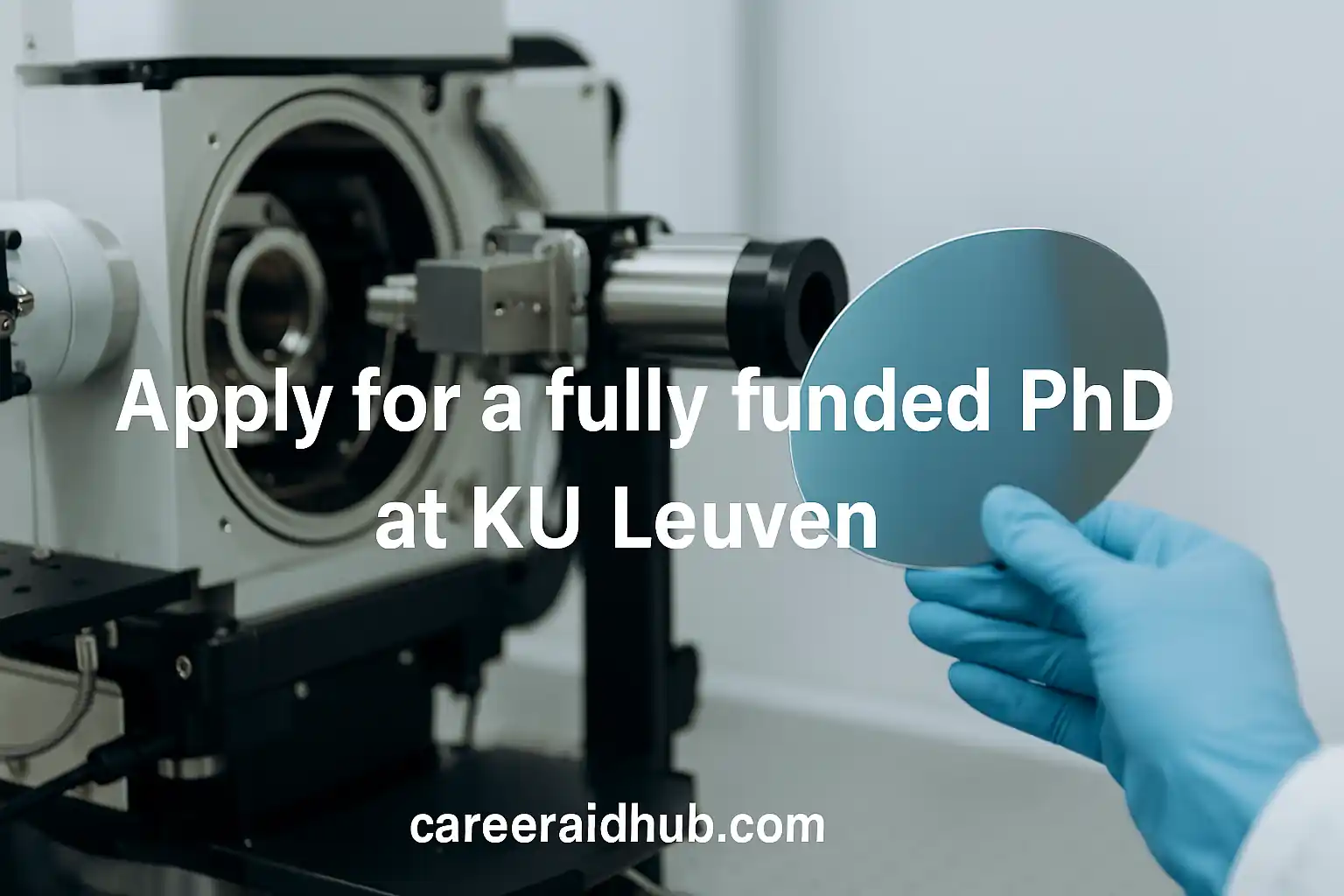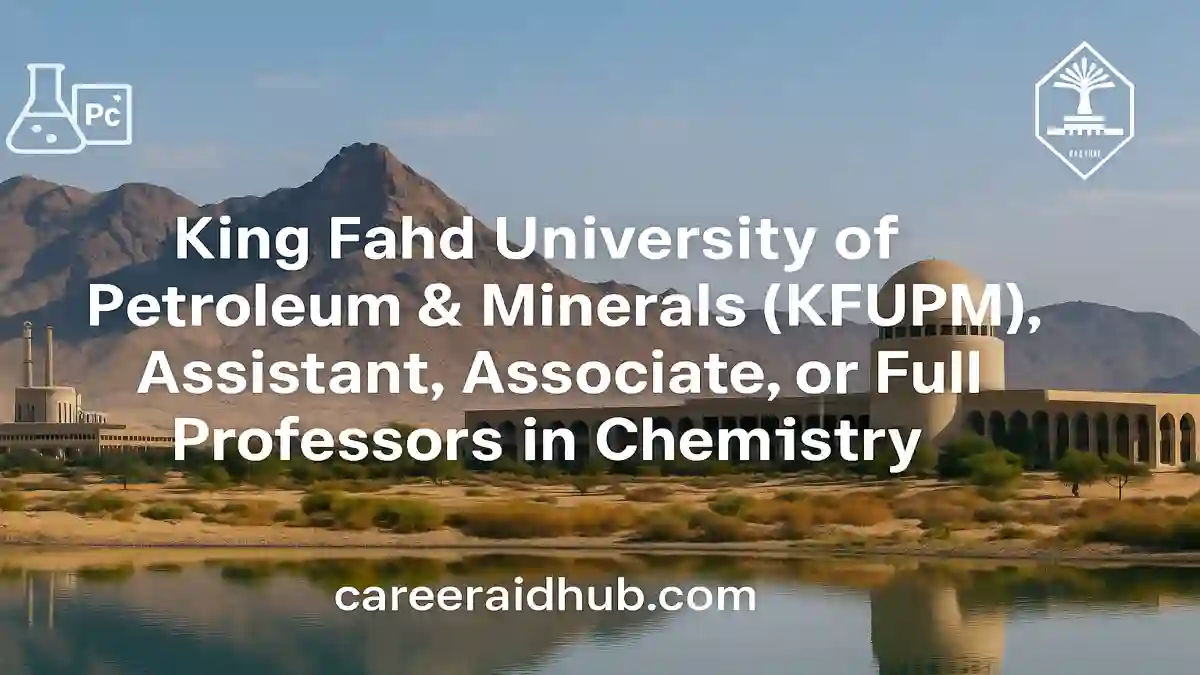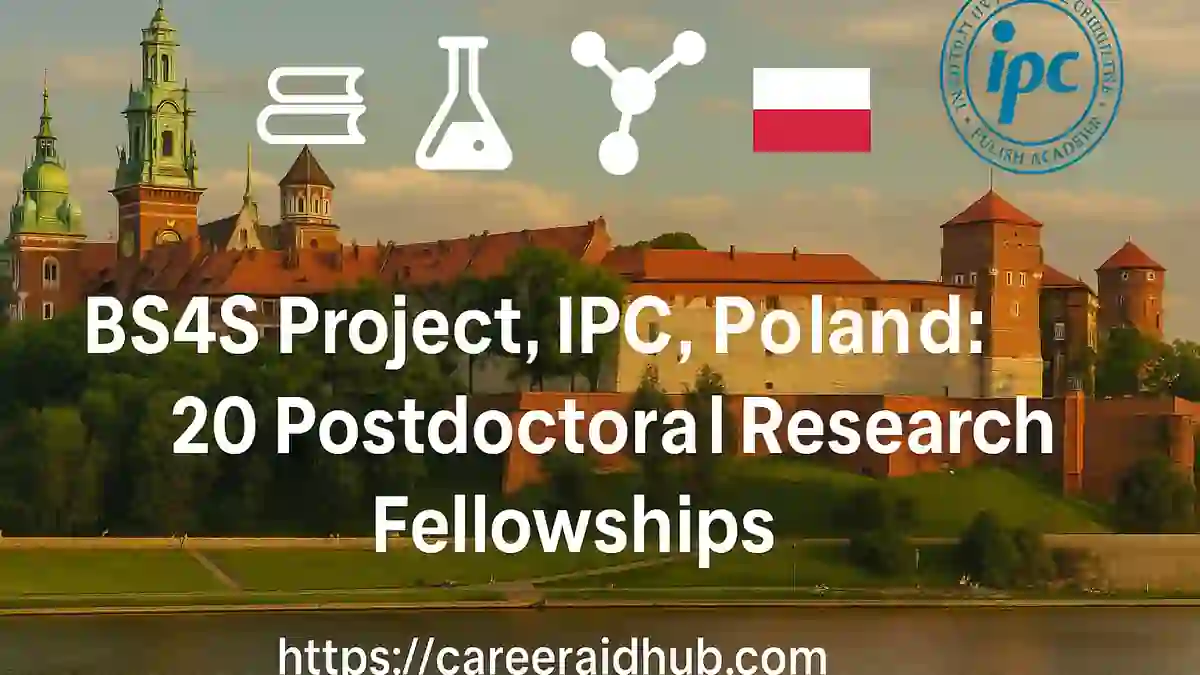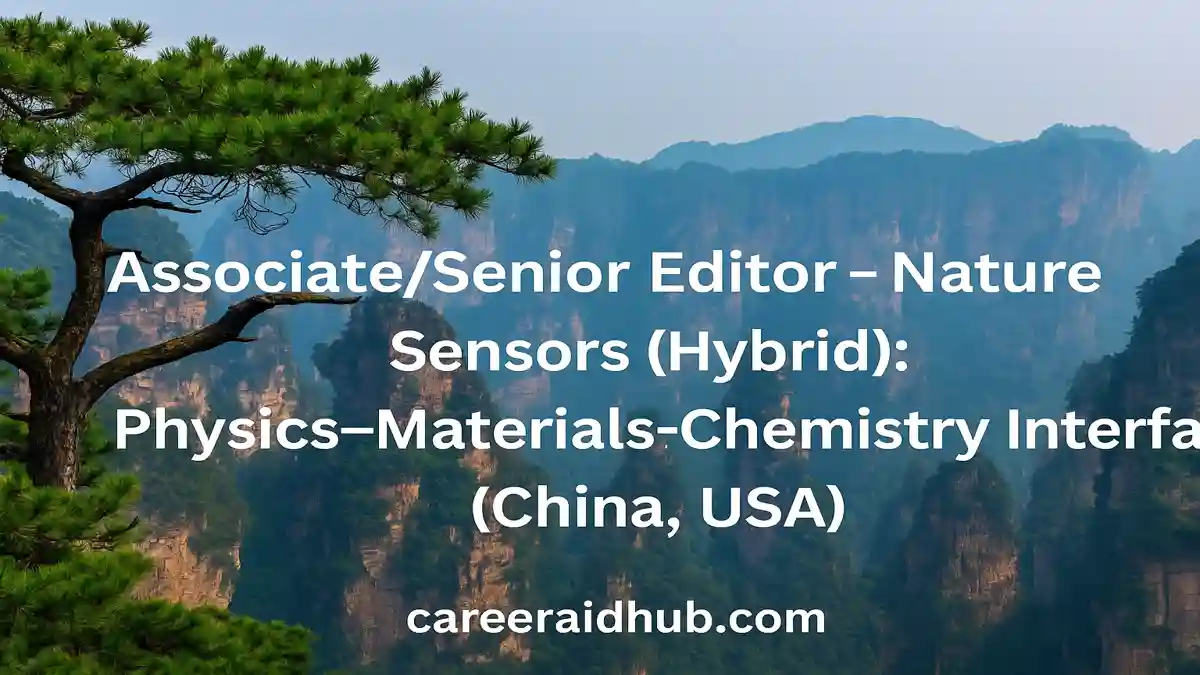The upcoming 2025 doctoral opportunity at KU Leuven—one of Europe’s premier research institutions—offers a prestigious platform for early-career scientists to engage in high-impact research on Metal Organic Framework (MOF) films. This PhD project is situated at the intersection of advanced materials science and microfabrication, enabling novel applications in chemical sensing and next-generation lithography.
PhD Position in Metal-Organic Films for Sensing & Lithography – KU Leuven 2025–2029
Hosted within the Ameloot research group at KU Leuven’s Department of Chemistry, the position leverages world-class infrastructure, including clean room facilities and the Leuven Nanocenter. The program is designed for ambitious graduates seeking full-time, funded PhD training and provides a pathway to both academic and industry careers.
This article provides a comprehensive guide for applicants, including eligibility, funding details, research themes, and application strategies.
About the PhD Position at KU Leuven
Program Overview
- Title: PhD Position: Metal Organic Films for Sensing & Lithography
- Application Status: Open for the 2025–2029 PhD cycle
- Duration: 4 years (initial contract for 1 year, renewable annually)
- Mode: Full-time, on-site (Leuven campus)
Project Objectives
The PhD project targets two cutting-edge applications:
- High-resolution chemical sensing, utilizing selective diffusion kinetics of volatile organic compounds (VOCs) through MOF films.
- MOF patterning for EUV and direct-beam lithography, enabling scalable microfabrication techniques.
The research integrates MOF synthesis, deposition,
Core Research Focus
- Deposition and characterization of MOF thin films
- Micro hotplate-based sensor integration
- VOC-specific kinetic diffusion studies
- Patterning MOF layers for advanced lithographic techniques
- Cross-functional collaboration within Chem & Tech and Nano research groups
Eligibility Criteria
Academic Background
- A completed or soon-to-be-completed Master’s degree in one of the following:
- Materials Chemistry
- Materials Engineering
- Chemical Physics
- Physics Engineering
- Or a closely related field
Professional Experience
- Prior work or academic exposure in any of the following is highly desirable:
- Clean room-based fabrication
- Atomic Layer Deposition (ALD) or Molecular Layer Deposition (MLD)
- Thin film measurement and electrical characterization
Language Requirements
- Proficient English skills, both written and spoken. The research and teaching environment is predominantly English-speaking.
Additional Competencies
- A solution-driven mindset with a practical, “maker-style” approach to problem-solving
- Strong interpersonal skills and a collaborative outlook
- An interest in translational research or potential commercialization is a plus
Application Process
- Visit the official job listing via the KU Leuven portal (Ref: BAP 2025 319).
- Log in or create a new applicant profile on the KU Leuven HR platform.
- Complete the online form with accurateacademic and personal data.
- Upload all mandatory documents (see next section).
- Submit the application no later than July 1, 2025, at 23:59 CET.
- For issues or clarifications, email: [email protected].
Apply Now: KU Leuven Application Portal
Required Documents
Applicants must submit the following materials:
- CV/Resume: Academic and research profile with detailed project/research contributions
- Cover Letter: Motivation for joining MOF-related research in sensing and lithography
- Academic Transcripts & Diplomas: All post-secondary education records
- Proof of Experience: Publications, lab reports, or certificates related to MOFs, clean room work, or thin film characterization
- Language Proficiency Tests: IELTS/TOEFL (if applicable)
- ID Proof: Passport or national identity card
- Optional: Statement outlining technology transfer interests
- Declarations: Any forms mandated by KU Leuven’s application portal
Fields of Study / Research Areas Supported
The position bridges multiple scientific domains:
- Metal Organic Framework (MOF) films
- Deposition techniques: ALD and MLD
- Ellipsometry and spectroscopic analysis
- Microfabrication and clean room engineering
- VOC sensor development
- Photolithographic patterning using EUV or direct-beam methods
- Collaborative research within the ERC-backed “KISSIES” program
Financial Benefits
Candidates appointed to the position will receive:
- A full-time employment contract for 4 years (annual renewal)
- Competitive salary and benefits aligned with KU Leuven’s PhD salary scale
- Full healthcare and socialsecurity coverage in Belgium
- Access to high-end infrastructure including clean rooms and nanotech labs
- Funded travel, materials, and research consumables budget
- Doctoral training and networking opportunities via the Arenberg Doctoral School
- Quality of life in Leuven, a student-friendly, international city near Brussels
Selection Process
Evaluation Stages
- Initial Review
- Evaluation of educational background, document quality, and alignment with project goals
- Interview
- Shortlisted candidates will participate in an interview which may include a technical presentation
- Final Selection
- Candidates are chosen based on technical aptitude, motivation, and potential for interdisciplinary contribution
Timeline
- Deadline: July 1, 2025
- Interview Period: Mid-July to August 2025
- Final Notification: Late August or early September
- Start Date: Preferably Autumn 2025 (flexible based on availability)
Application Timeline Overview
|
Milestone |
Date |
|
Applications Open |
Currently Open |
|
Submission Deadline |
July 1, 2025 (23:59 CET) |
|
Interview Window |
Mid-July to August 2025 |
|
Final Selection |
Late Summer 2025 |
|
Start Date |
Autumn 2025 (Flexible) |
Tips for a Strong Application
Writing an Effective Cover Letter
- Express genuine interest in MOF sensing and lithography
- Mention techniques like ALD, ellipsometry, or micro hotplate fabrication
- Reference alignment with the KISSIES ERC project
Crafting an Academic CV
- Showcase hands-on experience: deposition systems, clean room workflows
- List peer-reviewed papers, posters, and technical contributions
- Maintain clear formatting and professional fonts
Obtaining Strong Recommendations
- Request letters from supervisors familiar with your research and collaborative style
- Guide them to emphasize alignment with KU Leuven’s interdisciplinary focus
Demonstrating Technical Skills
- Attach brief portfolios or documentation showing skills in MOFs, patterning, or deposition techniques
- Applicants from adjacent fields should clarify their interdisciplinary relevance
Contact Information
For academic queries:
- Prof. Rob Ameloot
- Email: [email protected]
- Subject Line: “PhD position: Metal-organic films for sensing and lithography”
For technical or portal-related support:
- KU Leuven HR Support
- Email: [email protected]
- Helpdesk: Access via official KU Leuven job portal
Conclusion
The KU Leuven PhD opportunity in Metal Organic Films for Sensing and Lithography offers aspiring researchers a robust and interdisciplinary training environment. Encompassing advanced MOF material development, sensor integration, and EUV lithographic techniques, the project provides a springboard into academic excellence and industry readiness.
Positioned within a highly collaborative ecosystem and supported by the ERC-funded KISSIES initiative, the role offers significant career development potential. Interested applicants are strongly encouraged to apply by July 1, 2025 (23:59 CET) and initiate correspondence with the lead investigator to tailor their application.
Quick Reference Summary
|
Feature |
Details |
|
Program Name |
PhD in MOF Films for Sensing & Lithography |
|
Host Institution |
KU Leuven, Belgium |
|
Duration |
4 years (renewable annually) |
|
Funding |
Fully funded + benefits |
|
Application Deadline |
July 1, 2025 (23:59 CET) |
|
Research Fields |
MOFs, thin films, EUV lithography, VOC sensors |
|
Work Mode |
Full-time, on-site at Leuven campus |
|
Contact Email |
Source: KU Leuven jobsite – PhD Position in Metal-organic Films for Sensing and Lithography
FAQs
Applicants need a Master’s in chemistry, materials science, or a closely related discipline with strong English skills.
The project covers MOF deposition, ALD/MLD, lithography, cleanroom microfabrication, and VOC sensor development.
Apply via the official KU Leuven job portal by completing the online form and uploading required documents.










